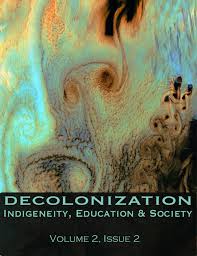Indigenous knowledge has sustained Indigenous peoples for centuries. Despite the traumatizing and coercive impacts of European, and later American colonization, Indigenous peoples have been able to maintain many aspects of their cultural knowledge and ways of life. In 2002, the Navajo Nation initiated a process through which they codified ethical standards their ancestors lived by since their emergence to Diné Bikéyah (Diné land). These ethical standards are known as the Fundamental Laws of the Diné. Since its codification process, Diné people have interpreted these laws and principles in various ways reflecting the variety of contemporary tribal individuals, groups, and institutions and their interests. In this article, I discuss how the Fundamental Laws are understood and applied by the Navajo Nation Council and tribal grassroots cultural and environmental organizations. I pay particular attention to how ancestral knowledge coded in the Fundamental Laws is interpreted by the government and the people and why the codification of these laws has not helped the people to decolonize and sustain their way of life.
A paper written by Lloyd Lance Lee.
Freely available through the Decolonization: Indigeneity, Education & Society Journal

